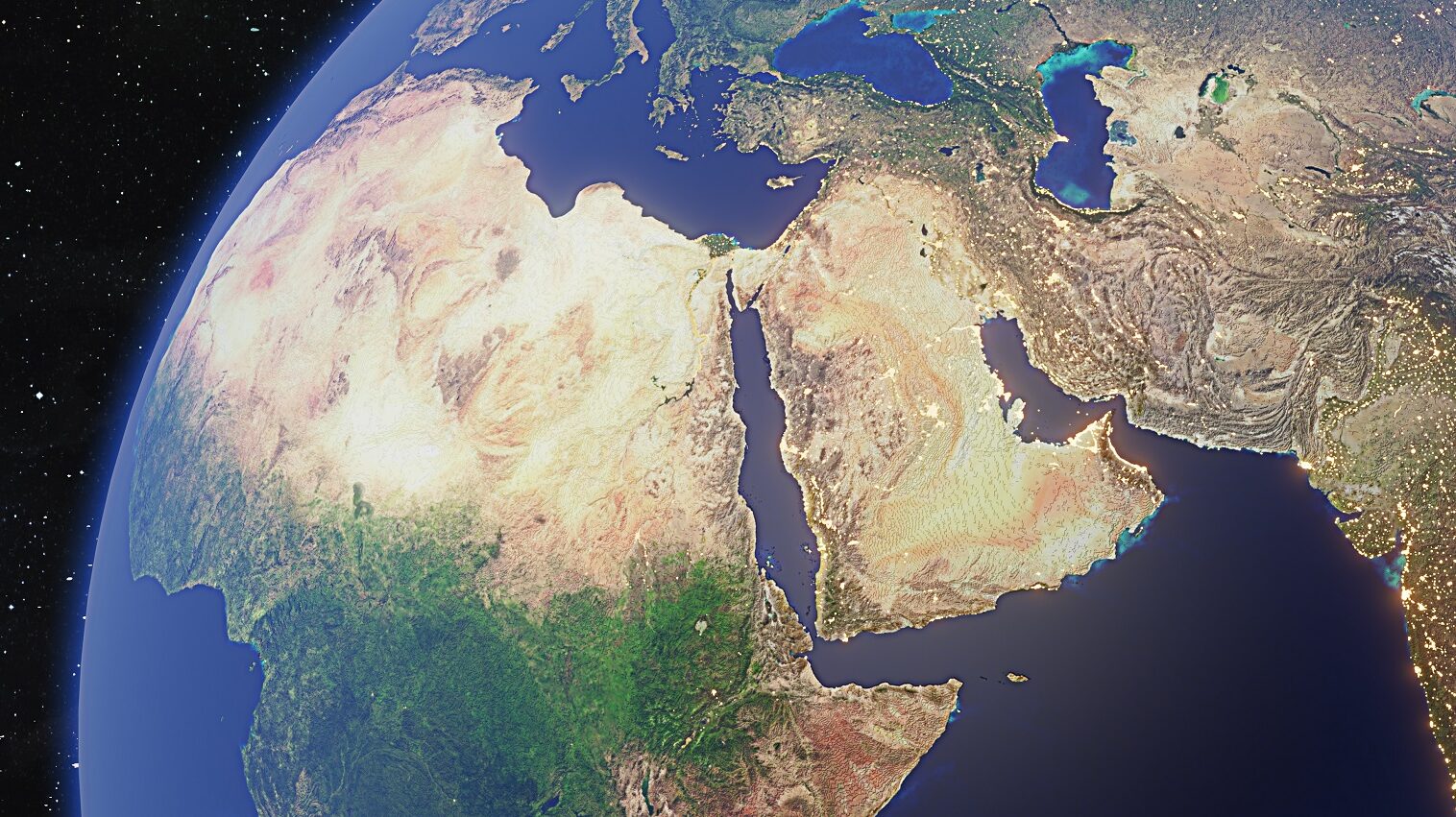Navigating the Middle East’s Fluctuating Landscape: From Conflict to Conciliation, Calm to Crisis
Regional powerhouses see diplomatic breakthroughs, while Israel grapples with internal protests and external conflicts, and Turkey prepares for consequential elections
One thing that’s constant about the Middle East: It’s never short on news.
As religious holidays near their end, the focus shifts to what’s making news in the region.
A flurry of activity is taking place in two regional powerhouse capitals: Riyadh and Tehran.
Saudi Arabia and Iran, once regional nemeses, are burying the hatchet as both countries seem to be willing to turn the page on a troubled relationship that reached a low point when they severed diplomatic ties back in 2016. That’s when Iranian protesters attacked Saudi diplomatic missions following the kingdom’s execution of Shiite cleric Nimr al-Nimr – one in a series of flashpoints between the long-time foes.
With Iran’s president expected in Saudi Arabia soon, and the Saudis negotiating with Yemen’s Houthi rebels this week in an attempt to end fighting there, optimism has blossomed for the turbulent Gulf region during the Muslim holy month of Ramadan.
The flurry of diplomatic activity follows last month’s landmark Chinese-brokered announcement that Iran and Saudi Arabia, which have backed opposing sides in conflicts around the Middle East, would work toward resuming ties.
It’s almost certain the warmup in ties between Riyadh and Tehran will have a direct impact on the war in Yemen.
The negotiations between the Houthis and Riyadh come eight years after the latter launched a military intervention aimed at dislodging the Iran-backed rebels from power in Sana’a, the capital of Saudi Arabia’s impoverished neighbor to the south.
Another crisis that will be influenced by the rapprochement between the two countries is the conflict in Syria, which was expelled from the Arab League in 2011 after President Bashar Assad’s government launched a bloody crackdown on pro-democracy protests.
This holiday season, give to:
Truth and understanding
The Media Line's intrepid correspondents are in Israel, Gaza, Lebanon, Syria and Pakistan providing first-person reporting.
They all said they cover it.
We see it.
We report with just one agenda: the truth.


In a dramatic turn of events, Syria’s Foreign Minister Faisal Mekdad and his Saudi counterpart Prince Faisal bin Farhan met in Jeddah, signaling a return of Damascus to the Arab fold.
The visit is the latest sign of a move toward a restoration of relations between Syria and Saudi Arabia.
Ahead of the talks, United Arab Emirates President Sheikh Mohammed bin Zayed Al Nahyan flew to Cairo for talks with Egyptian leader Abdel Fattah el-Sisi.
All these diplomatic efforts have gained momentum due to the rapprochement with Iran, a key ally of the Syrian government, last month.
Many are keeping a close eye on the domestic turmoil in Israel, as well.
The Jewish state is planning an extravaganza to celebrate the 75th anniversary of its establishment as it deals with mass protests over highly controversial plans to overhaul the judicial system.
The changes would give the government full control over the committee that appoints judges and would ultimately strip the Supreme Court of crucial powers to strike down legislation.
By late March, 21% of Israelis had participated in at least one act of protest against the government’s planned reforms, and the demonstrations have affected Jerusalem’s ties with its closest ally, Washington.
Add to that a significant spike in tension and violence between Israelis and Palestinians, which has marred a period when the Muslim holy month of Ramadan coincides with the Jewish Passover and Christian Easter.
There has also been significant cross-border violence between Israel and its neighbor to the north, Lebanon. Israel in the early hours of Friday launched its biggest airstrikes on Lebanon in 17 years in retaliation for dozens of rockets fired from southern Lebanon during the Jewish holiday of Passover, sending tensions in the region spiraling.
The exchanges represent the most serious escalation between Israel and Lebanon since a 34-day war in 2006.
The continued violence between Israel and its neighbors diminishes the prospects for deepening the Abraham Accords normalization agreements and extending them to additional Arab countries.
In Sudan, the threat of a faceoff between the army and paramilitary forces increased on Thursday.
Sudan’s regular army warned that the country was at a “dangerous historical turning point” after paramilitaries deployed more fighters in major cities amid a deepening rift within the military government.
Plans to integrate the paramilitary Rapid Support Forces led by Mohamed Hamdan Dagalo into the regular army led by Lt. Gen. Abdel Fattah al-Burhan, Sudan’s de facto leader, hit a wall during talks to finalize a deal aimed at returning the country to civilian rule and ending the crisis sparked by the 2021 coup. As a result, the country is at risk of collapsing into chaos.
In Egypt, the Arab world’s largest country, which is dealing with an economic downturn, a top official denied a Washington Post report that claimed, citing a leaked US intelligence document, that the country’s military was planning to produce 40,000 rockets for Russia.
The leaked document obtained by the paper said Egypt’s President el-Sisi had instructed officials to keep the production and shipment of the weapons a secret “to avoid problems with the West.”
Ankara is preparing to hold on May 14 what is widely considered Turkey’s most consequential election in recent history. There will be two elections held that day: All 600 seats in the Grand National Assembly of Turkey, the country’s unicameral parliament, as well as the presidency, are up for grabs. Current polls give Kemal Kılıçdaroğlu, the main opposition leader and head of the Kemalist, social democratic Republican People’s Party, a small lead over incumbent President Recep Tayyip Erdoğan, leader of the neo-Ottoman, conservative Justice and Development Party. Topping the agenda: a faltering economy.

